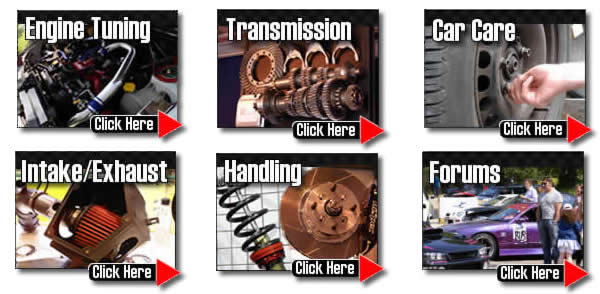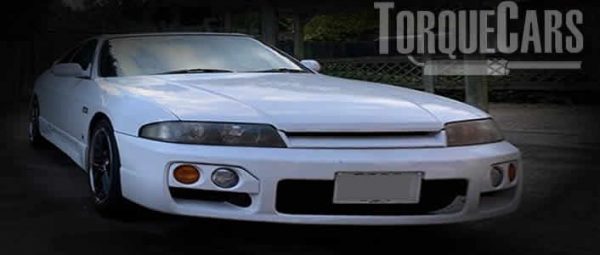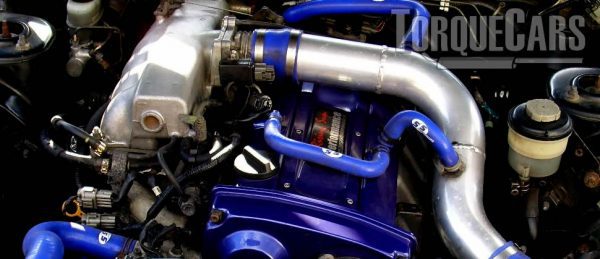Tuning the Nissan Skyline R33
"Tuning guide to the best Nissan Skyline R33 modifications."
The Skyline R33 is a awesome project car to take up your weekends. Plan ahead and research Skyline R33 tuning to spare yourself making the usual common slip ups we frequently hear people complain about.
The R33 was only available as an import in many regions, which is a shame as this car is a legend to both drive and tune up.
There is no surprise that the R33 Skyline is one of the most sought after project cars around, most countries where it was available offer more imports than locally sourced versions!

- HR33 GTS – 2.0 L RB20E SOHC I6, 128 hp 172 N⋅m (127 lb⋅ft)
- HR33 GTS- 2.0 L RB20DE DOHC I6, 153 hp 192 N⋅m (142 lb⋅ft)
- ER33 GTS-25 – 2.5 L RB25DE DOHC I6, 187 hp 231 N⋅m (170 lb⋅ft)
- ENR33 GTS-4 – 2.5 L RB25DE DOHC I6, 187 hp 231 N⋅m (170 lb⋅ft) 4WD
- ECR33 GTS-25t – 2.5 L RB25DET DOHC turbo I6, 247 hp 294 N⋅m (217 lb⋅ft)
- ECR33 P.Ride 280 Type MR – 2.8L RB28DET DOHC turbo I6, 296 hp)
Handling/Suspension upgrades
Improving the handling for many people first priority in your Skyline R33 tuning project.
We found that most Skyline R33 factory suspension setups need tweaking, a few degrees of toe out for cornering or toe in for stability, 1 to 2, and a little negative camber will greatly enhance your cornering and handling.
Drop the car by as much as 23mm - 42 mm. and fit performance stiffer dampers, bigger drops will need other modifications in most instances.
Our aim in Skyline R33 engine tuning should be to increase peak power and Torque at the top end.
Smaller engines do not provide much of a return in terms of power so start with a bigger engine. Engine swaps are a good option if you have a small engine size.
Engine tuning mods.
These are the upgrades are usually fitted by our members, decide how far you want to push your car before you start.
Most people satisfy themselves with 550-600 PS @ flywheel, and as long as the tune is good and you're somewhat moderate with revs, it should be pretty reliable.

One of our members told us about a guy who ran his R32 GTR three seasons with 550 PS, and when something finally broke, it wasn't the engine internals but the gearbox!
Getting the right tuning parts for your planned usage of the car is a time and money saver. Stage 3 motor sport mods just don't work well on the road difficult in stop start traffic.
Please watch our introduction Video tutorial to car tuning. Be sure to subscribe and support our new channel.
How to tune your car
- Improve the handling
Focus on Suspension improvements, such as coilovers and make sure the bushings are in good order and that the alignment is correct. Then focus on improving the brakes, with a big disk brake conversion kit and fast road brake pads.
- Remove restrictions
Focus on the intake and exhaust with filters being the common point of restriction in a tuned car. Intercoolers may also become restrictive on turbo engines so this may also need to be uprated.
- Burn more fuel & air
Increase the fuelling so it matches the air coming into the engine. The ratio is important so you need to improve the fuel pump and injectors, so the head mods, big valve conversions, fast road camshafts and forced induction upgrades extra supply of air is adequately met.
- Test and replace any weak parts
Weak areas are commonly the clutch, the turbocharger and pistons and crankshaft in a highly tuned engine. Makes sure these components will cope with your power aspirations.
- The Tune or Remap
A cars ECU controls the fuel, timing, spark and even the turbo in some cases, so to fully extract your gains you should remap the car last and this will fully release the power. Some cars are easy to map, and others require piggyback ECU's or aftermarket ECU's but this is the most vital step of your tuning project.
Modifying to Stage 1:
Lighter flywheel, Alloy wheels, Remap, Panel air filter, Suspension upgrade (drop 23mm - 42 mm.), Sports exhaust.
Modifying to Stage 2:
fuel pump upgrades, Ported and polished head, high flow fuel injector, Power/Sport clutch, Fast road cam.
Modifying to Stage 3:
Engine balancing, Sports gearbox, Competition cam, Adding or upgrading forced induction (turbo/supercharger), Internal engine upgrades (pistons/head/valves).
The RB25 block is probably the most popular on the modified scene.
Standard Boost is 2 stage. 0.5 bar until NVCS (about 4.5k revs), then 0.7 bar until 7k rev standard rev limit.

This helps maintain fuel economy and keeps it drivable in slow traffic, the stage 2 boost mod is usually the first thing an RB25 tuner will do and makes a very easy power gain.
This mod involved quite simply cutting the black wire on the solenoid and connecting this to ground on the car body, forcing the car to stay in stage 2 boost all the time.
Alternatively fit a boost controller and set this to around 0.85bar of boost with the OEM turbo, or more if you've put in better components.
Peak power is good on competition cars but for a daily driven car you need a long power band and perhaps extending the rev range.
In this article we shall give an overview and introduction to the best mods for your car, but we'd encourage you to spend some time on the site looking into the details of each type of performance modification.A fast road camshaft is widely accepted as one of the best NASP power modifications you can do from a single upgrade to your engine.
It maximises the intake and exhaust flow and pushes up the power if done right. Ideally you'd add other mods and finish up with a reflashed ECU. We'd also caution you not to go with a competition cam as this affects the engines idling and general town driving characteristics.
Don't forget to increase the fuelling when you are increasing the power - it makes the car more thirsty.
If you find you suffer from flat spots and surges after your modified modifications you should check the fuelling and try a higher octane fuel as well. Larger injectors will enable you to supply sufficient fuel to the engine.
If have increased your fuelling with bigger injectors you will also need to get a bigger fuel pump to supply it.
Intake and Exhaust Tuning.
Breathing mods are usually next up. Air induction kits will only help to add performance if the cars air intake is restricted!
Do not go with the biggest exhaust you can buy this will reduce the exhaust flow rate - the best exhausts for power gains are usually between 1.5 to 2.5 inches. It is the shape and material more than the bore size.
Get the head flowed (porting and polishing) the head will allow you to maximise your air/fuel charge. Leave this to a professional though with a proper flow bench and machine tools.
Your clutch can slip as the power goes up if it starts to break and the standard clutches are only ever good for power gains of up to 45%. Fit a power clutch to avoid power losses through the transmission. The best mods in our opinion for your Skyline R33 are Remapping or piggy back ecu, fast road cam and air intake and exhaust.
Remaps offer large power gains on all turbo charged cars. On NASP engines the benefits are doubtful. However a remapped ECU on a NASP engine will help unleash the potential if you have done a lot of mods. The most significant power gains for NASP engines usually involve the addition of forced induction.
Superchargers are often easier to add than turbos. With a turbo the boost curve is related exponentially to the engine speed making it more challenging to map.
Running more than 0.9 bar boost on standard ceramic turbo causes premature turbo failure. Oil cooling required on spirited use, these run quite hot so keep an eye on the oil temps.
Oil surge on high speed cornering leads to bearing failure (People often overfill standard engine by about ½ litre or more when on track, up to the H on the dipstick which is about 10mm over the full line)
- After 300 bhp you'll need an upgraded ECU.
- At 320-340bhp and greater you should uprate the turbo, head gasket, clutch, airflow meter and injectors.
- Pistons are generally good for 500bhp.
The RB25 block can be rebored from the standard 86mm to 86.5 or 87mm.
Alloy wheel upgrades.
As alloys are less heavy they improve performance and they can help to cool the brake disks.
We can't go into too much detail here about tires but they are how the car puts the power down on the road so are a critical choice.
Directional tread pattern tires work well on Skyline R33, and make a big difference over budget tires. Please note although they can look cool on the Skyline R33 large alloy wheels will actually decrease your performance.
The larger you go the lower your acceleration will be - this to the change in your effective final drive ratio.
Although some people have gone larger than this we would restrict ourselves to a 18 inch rim size as the maximum.
For more information on Tuning your car please join us in our friendly forum where you can discuss Skyline R33 options in more detail with our Skyline R33 owners. It would also be worth reading our unbiased Nissan tuning articles to get a full grasp of the benefits and drawbacks of each modification.
Please help us improve these tips by sending us your feedback in the comments box below.
We love to hear what our visitors have got up to and which mods work best for them on each model of car. Comments are used to improve the accuracy of these articles which are continually updated.
If you liked this page please share it with your friends, drop a link to it in your favourite forum or use the bookmarking options to save it to your social media profile.
Check out TorqueCars new YouTube channel, and see their awesome new content...
Feedback
Please use our forums if you wish to ask a tuning question, and please note we do not sell parts or services, we are just an online magazine.
Help us improve, leave a suggestion or tip
